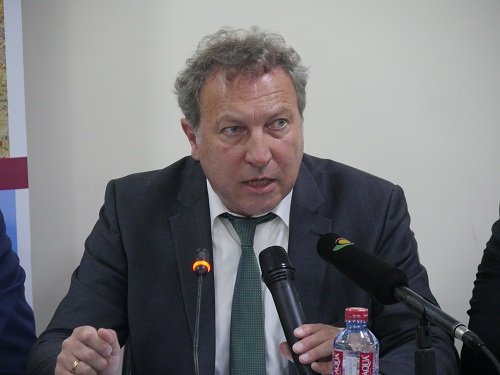The Climate Research Alumni and Post Doctorate in Africa (CLAPafrica), a funding and networking programme which is geared toward opening opportunities in research and professional development for post-doctorate and alumni in Africa has been launched.
Held in Accra, the course is expected to speed uptake and use of research outputs through vibrant, highly connected network to facilitate the development of regional solutions.
It is being run by the German Academic Exchange Service (DAAD) in partnership with the West African Science Service Centre on Climate Change and Adapted Land Use (WASCAL) and the South Africa Science Service Centre on Climate Change and Adapted Land Use (SASCAL).
Speaking at the launch, Professor Rene Haak, the German Federal Minister of Education and Research, said the essence of the cooperation was to support the exploration of the sub-regional effects of climate change in Africa.
“The fight against climate change demanded thorough research and building the capacity of people to enable them identify the causes, effects and solution from the grassroots,” he said, adding that “Africa is probably the most vulnerable continent to climate change and variability.”
Prof. Haak said Sub-Saharan Africa was vulnerable to climatic changes, especially as its agricultural systems, which the livelihoods of a large proportion of the region’s population currently depended on, was rain-fed.
Mr Cay Etzold of the German Academic Exchange Service, on his part said the world’s fight against climate change was a giant step toward ensuring global peace.
He explained that effects of climate change caused natural disaster such as drought, floods, increases in temperature and monsoon, which kills and displaced people.
“The movement of people into informal settlements may expose them to a variety of risks different but no less serious than those faced in their place of origin,” he said.
Dr Moumini Savadogo, the Executive Director of WASCAL, said climate services were being provided by WASCAL to countries within the sub-region to ensure effective adaptation to climate change mitigation measures.
He said his outfit would continue to build strategic partnership with international, local and regional stakeholders in its pursuit to build a West African think-tank in tackling the issues of climate change.
Dr Savadogo urged all students pursuing climate change programmes and alumni to take advantage of the opportunities made available.
“I urge you all to see this partnership with DAAD as one of the biggest opportunities you could experience. Just imagine the potential job opening opportunities around the world to be shared amongst you, do not take this for granted,” he advised
By BENEDICTA GYIMAAH FOLLEY

